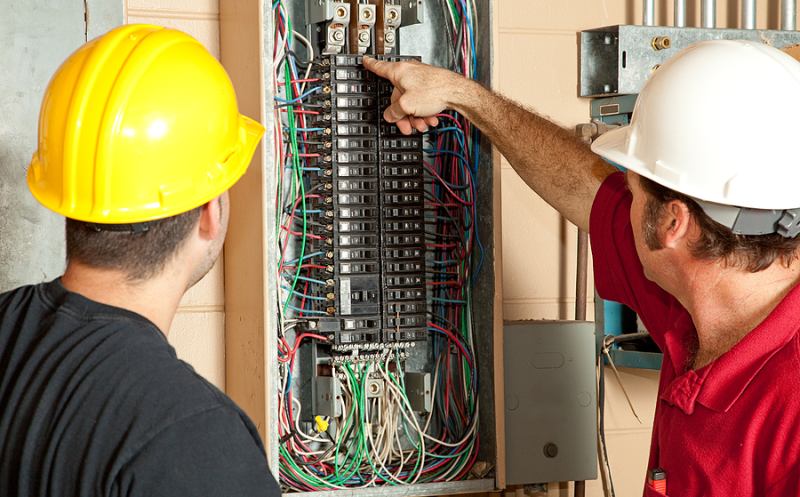24-Hour Emergency Electricians in Fort Worth, TX
Call this Tuesday to Get 10% OFF
Need an electrician?
Schedule NowRequest Electrical Service Now
817-585-299324-Hour Emergency Electricians in Fort Worth, TX
Call this Tuesday to Get 10% OFF
Need an electrician?
Schedule NowRequest Electrical Service Now
817-585-2993
Understanding electrical panels and circuit breakers is crucial for the safety and functionality of your home's electrical system. Having a fundamental understanding of the electrical components can be really helpful because as a homeowner, you might occasionally run into electrical problems.
In this blog post, our professionals from Mr. Electric will explore the essential features of electrical panels and circuit breakers to understand their significance and the part they play in protecting your house.
The need of using a licensed electrician when working with electrical panels and circuit breakers must be emphasized above all else. Trying to undertake electrical work on your own might result in dangerous scenarios, such as fires and electrical shock. An expert electrician can guarantee the security and compliance of your electrical system because they are qualified to undertake a variety of electrical operations, from installations to repairs.
The breaker box or fuse box, commonly referred to as the electrical panel, is the brain of your house's electrical system. It typically resides in a garage, basement, or utility room. The electrical panel's main job is to distribute electricity throughout your house and safeguard it from overloads.
Circuit breakers or fuses, which manage the flow of energy to various parts of your home, are located inside the electrical panel. Each circuit, which includes breakers, is in charge of a different area of your house, such as the kitchen, living room, or bedroom.
Circuit breakers are crucial safety tools that stop electrical circuits from heating up excessively and igniting a fire. They function by automatically "breaking" or disconnecting the circuit whenever an overload or short circuit is detected. Electricity is cut off to protect the wiring and appliances in your home.
It's critical to repair the problem right away if you frequently trip the circuit breakers or observe any wear and tear. DIY endeavors are not advised because they can be risky. To identify and fix the issue, speak to a certified electrician or electrical repair company.
Conclusion
Maintaining a secure and reliable electrical system in your house requires an understanding of electrical panels and circuit breakers. Keep in mind that only licensed specialists, such as electricians and electrical repair firms, should perform electrical work. Your electrical system will be safe and reliable for many years to come with regular upkeep, electrical repair services, and, if necessary, electric panel replacements. Maintaining knowledge and being proactive can help you choose the protection of your house and loved ones over compromising on electrical safety.